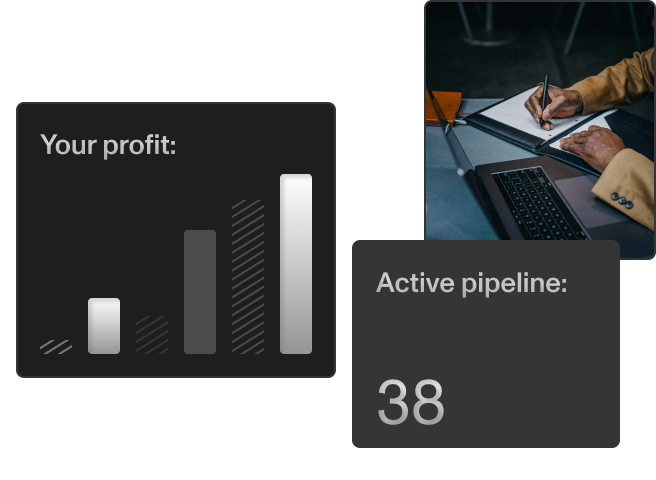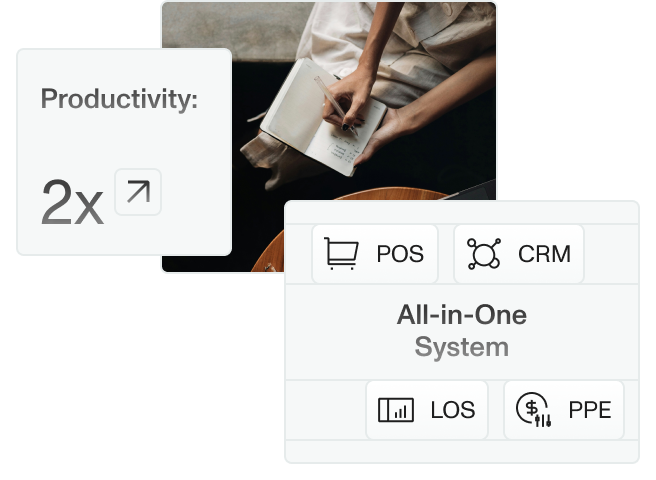Most mortgages in the U.S. comply with conforming loan limits. These mortgages are purchasable by Fannie Mae and Freddie Mac and typically offer the lowest interest rates, making them appealing to homebuyers.
The 2024 base conforming loan limit is $766,550 for single-family homes. The limit is higher in Alaska, Hawaii, and high-income counties. Mortgage lenders and originators need to be familiar with these limits, as they can change by year as well as by county.
In this article, we will discuss what conforming loan limits are and how they are determined. We will also cover the changes in conforming loan limits for 2024 and how these changes may impact your business.
New Conforming Loan Limits for 2024
Conforming loan limits are calculated to reflect the average home price. In 2024, the new $766,550 baseline rate for single-family homes reflected a 5.56% increase from the previous year’s $726,200 cap.
For higher-cost areas, the limit is now $1,149,825, a similar 5.56% hike from 2023’s $1,089,300 limit. However, the new conforming loan limits in 2024 may not increase your borrower pool, as home prices have also soared.
| Conforming Loan Limits | 2023 | 2024 |
|---|---|---|
| Baseline limit for single-family properties | $766,550 | $726,200 |
| Maximum limit for high-cost areas | $1,149,825 | $1,089,300 |
The 5.56% hike wasn’t arbitrary; home value in the U.S. increased by the same margin between 2022 and 2023’s third quarters.
What Are Conforming Loan Limits?
Conforming loan limits represent the maximum amount someone can borrow for a mortgage loan eligible for purchase by Fannie Mae and Freddie Mac. It varies by county based on the area’s average home price.
What are conforming loan limits used for?
The government uses conforming loan limits to cap the loans guaranteed by Fannie Mae and Freddie Mac. The goal is to mitigate the economic risk of lending large sums and prevent mortgage rates from becoming too expensive.
It helps to acknowledge the economic and regulatory factors that influence each adjustment to truly understand the conforming loan limits. The Federal Housing Finance Agency (FHFA) determines the following year’s conforming loan limits every November, with any increase attributable to changes in the FHFA’s House Price Index.
Conforming loan limits increase with home prices to give borrowers better access to homeownership. The limits may also stay the same from year to year if the housing market is stable. However, you’ll never see a decrease in conforming loan limits.
What Are Conforming Loans?
Conforming loans are mortgage loans that satisfy criteria set by Fannie Mae and Freddie Mac, including the maximum loan amount. Since a government guarantee backs these loans, they often have more favorable terms for borrowers.
However, meeting the conforming loan limit is only one requirement. Credit score, income, and down payment size are also important. The benefit of a conforming loan lies in lower risk for lenders and better deals for borrowers.
Conforming loans are distinguished by their adherence to Fannie Mae and Freddie Mac guidelines, while non-conforming loans exceed the specified limits or deviate from other mandates.
Implications for Lenders and Borrowers
Conforming loan limits significantly affect the market, as most mortgages are engineered to comply with these standards.
With an increased limit, borrowers gain lending power, and lenders can service clients who might have been priced out of the market if the adjustment had not come. Conforming loans also let you offer lower interest rates and better terms.
For many borrowers, the attractive terms turn homeownership into a realistic goal. 2024’s higher conforming loan limit means they can finance pricier homes while reaping the benefits of federally backed mortgages.
Qualification is also easier with conforming loans. Borrowers may be approved for some loans with comparatively low credit scores and down payments.
Still, 2024 conforming loan limits may be too low for some borrowers, particularly those in expensive areas. Even the maximum $1,149,825 allowed for homes in these areas may not be enough. In that case, borrowers can explore non-conforming jumbo loans with higher interest rates and stricter credit requirements.
Strategies for Navigating Conforming Loan Limits
When dealing with conforming loan limits, here are some strategies to keep in mind:
- Stay updated on any changes: As mentioned, conforming loan limits are not uniform across counties, and they can potentially increase every year.
- Consider non-conforming loans: Other options are available for homebuyers who may not fit within the conforming loan limits, such as Federal Housing Agency (FHA) loans or Veterans Affairs (VA) loans.
- Educate clients: Borrowers may not know the benefits of a conforming loan, so explain the advantages.
- Collaborate with industry professionals: Keep in touch with lenders with access to different loan products.
You must approach conforming loan limits with a clear strategy to keep a steady stream of borrowers flowing through your pipeline. Consider industry standards and what you learn when collaborating with other lenders. For instance, many top lenders rely on sophisticated mortgage platforms like Sonar, which automatically track changing conforming loan limits and other market shifts.
Conforming loan limits plays a significant role in the housing market and the types of loans you originate. With the new limits for 2024 already in place, now is an excellent time to review your strategies and explore ways to offer your clients better, more creative options.
By staying informed and adapting to every shift in home prices, you’ll be prepared to offer clients the most suitable loans for their goals, whether conforming or not.
Conforming loan limits are not static and are subject to change every year. Your sensitivity to the market lets you prep your business for change before the next limits are even announced.
Sonar remains committed to providing regular mortgage news and updates. Our blog covers conforming loan limits, legislation, and other critical industry topics.
Stay informed and make empowered mortgage decisions in 2024 with Sonar.







